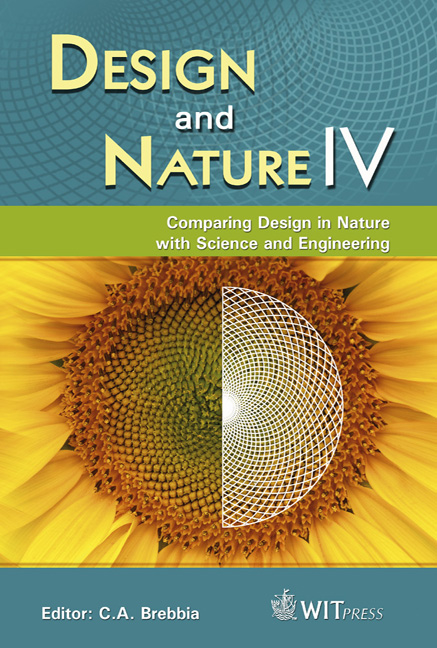Design Education Oriented To Nature
Price
Free (open access)
Transaction
Volume
114
Pages
10
Page Range
329 - 338
Published
2008
Size
1,045 kb
Paper DOI
10.2495/DN080331
Copyright
WIT Press
Author(s)
B. Colombo, F. Rosa, E. Rovida & R. Viganò
Abstract
Nature is a starting point to analyse and to conceive solutions for complex systems, and a reservoir of inspiration to provide innovative answers to the product development as well as to the interaction between man and nature: this is the first key idea that the authors would like to transmit to the new generations of engineers and designers. Furthermore, it is also important to embed the development of technology within a sustainable development frame-work: from this point of view the authors are encouraging students to develop a particular case-study. Keywords: design education, TRIZ, theory of technical systems, bionics. 1 Introduction A not thorough analysis could lead to the conclusion that the technical university curricula should be focused only on technical matters; on the contrary, a deeper analysis about what a good technician should know reveals that several other aspects are relevant. In this paper we will mainly deal with two of these aspects. First, we want to highlight the importance to recognize, among the dozens of mathematical models that a young engineer knows, the model that better represents the specific physical problem, as to say the ability to analyze the natural phenomenon and to \“extract” its \“governing law”. Second, a good engineer should not merely repeat by rote something that he learned when he was a student, but should also be able to develop new ideas and products, and even to design a new machine, even starting from some generic functional requirements. Several theories and methods have been developed to help the designers to perform the latter activity; among these procedures and approaches we are particularly interested in the possibility to use the forms and laws of nature as a
Keywords
design education, TRIZ, theory of technical systems, bionics.





